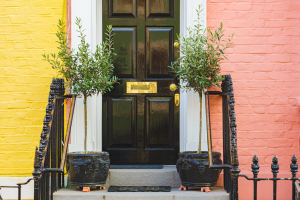Why is divorce so expensive?
The cost of divorce can be a stressful and overwhelming part of the separation process. Depending on your chosen route, you could face endless legal fees with no certainty of the total cost or the time it will take. On top of this, there are also other associated costs.
Here are three factors that impact why divorce is so expensive:
- The legal process (legal fees etc.)
- Lifestyle costs (dividing one household into two etc.)
- The emotional cost (support healing etc.)
The financial cost of divorce can impact your well-being and ability to cope, with acrimonious divorces being much more financially and emotionally expensive than amicable ones. Sometimes hidden behind variable hourly rates, it is often hard to know how much a divorce will realistically cost you both and how you can keep the costs to a minimum.
In this blog, we’ll look at why divorce is so expensive and how to keep costs low.
The legal process
How much does it cost to get divorced?
You can get divorced through the government website for the cost of the £593 court fee. It’s a relatively simple process you can do yourself unless you want professional assistance.
It's the cheapest option (excluding legal aid). However, this doesn’t sort out the financial side of separating. Think of the court fee, like an admin fee, for the court to process your divorce application and other forms. This includes:
- Divorce application
- Acknowledgement of service (your ex’s response if it’s a sole application)
- Conditional order application
- Final order application
Dividing money, property and making other financial arrangements:
You can get help agreeing to your arrangements through our negotiation services, mediation or using other professionals. To make your financial agreements over money and property legally binding, you will need a consent order (if you agree). This will also end the possibility of future claims through a ‘clean break’.
A legal professional, such as amicable, needs to draft your consent order. You will also need to pay an additional court fee for the court to process your consent order, which is £58.
All our fees are fixed, include VAT and can be spread across several months through our flexible payment plans.
Legal aid and divorce:
Legal aid was introduced in the Legal Aid and Advice Act, aimed at providing legal assistance to those who couldn’t afford it. Over the years, legal aid evolved to encompass various legal issues, including family matters, housing disputes, and criminal cases.
In recent decades, budget constraints and policy changes have reduced legal aid availability. In divorce and family law matters, individuals are eligible for legal aid in domestic abuse cases.
Victims of domestic abuse can still access legal aid to help them:
- Navigate legal processes
- Obtain restraining orders
- Make the best possible arrangements for children
- Seek justice in the face of abuse
This support is crucial in ensuring vulnerable individuals can access the legal assistance some people need during difficult times. For help with legal aid, explore the government's legal aid guidance page.
These organisations help survivors of domestic abuse:
Help with fees and divorce:
It’s possible to apply for a discount or exemption of the court fees. If you earn less than £21,000 and have less than £3,000 in savings or receive benefits/ other financial relief. You can explore the government's help with fees scheme and get your help with fees code here.
Choosing your professional help:
Who you choose to help with the legal process will impact your divorce's cost. Choose a method that won’t add unnecessary conflict, which will end up delaying proceedings and adding extra costs.
Lifestyle costs:
The other reason why divorce is so expensive, is associated lifestyle costs, such as rehousing and additional childcare. According to Aviva, the average couple spends £14,500 during a divorce (including associated lifestyle changes).
By working together to find creative solutions, you can keep these costs lower. For example, bird nesting is increasing for parents making living arrangements for their children after separating. At amicable, we help couples to negotiate a fair agreement, which prioritises the family and helps couples understand all the options available rather than one person's best-case scenario.
The emotional cost of divorce:
If you have an acrimonious separation, it’s more likely you will need support with the emotional journey, such as therapy or counselling. We know ‘bad separations’ also impact people’s ability to continue working or work performance. Therefore the cost of divorce will be higher if you aren’t able to have an amicable separation. Utilise free tools and services, such as The Divorce Podcast, which helps you navigate the emotional, legal and financial aspects of separation.
Divorce can be expensive, but there are many ways you can keep the costs low. Ultimately, staying in an unhealthy and unhappy relationship, not only costs you emotionally but may negatively impact your children. There are many creative solutions that can help you separate in a kinder and better way, enabling you to build positive futures apart. Read our guide on how to separate amicably here.
Read More

In short, it depends. There's no defined formula for splitting money and property when you separate, and there are many factors that impact whether or not…
-4.png)
We know that getting divorced is not an easy or cheap process for most. It's an emotional journey with legal and financial consequences. Usually,…
%20(1).png)
Divorce has a reputation for being expensive, but fees don’t have to rise through the roof. Luckily, there are plenty of ways to keep the costs down […]

Start your amicable divorce journey
Speak to an amicable Divorce Specialist to understand your options and next steps for untying the knot, amicably.
.png)





Comments (0)